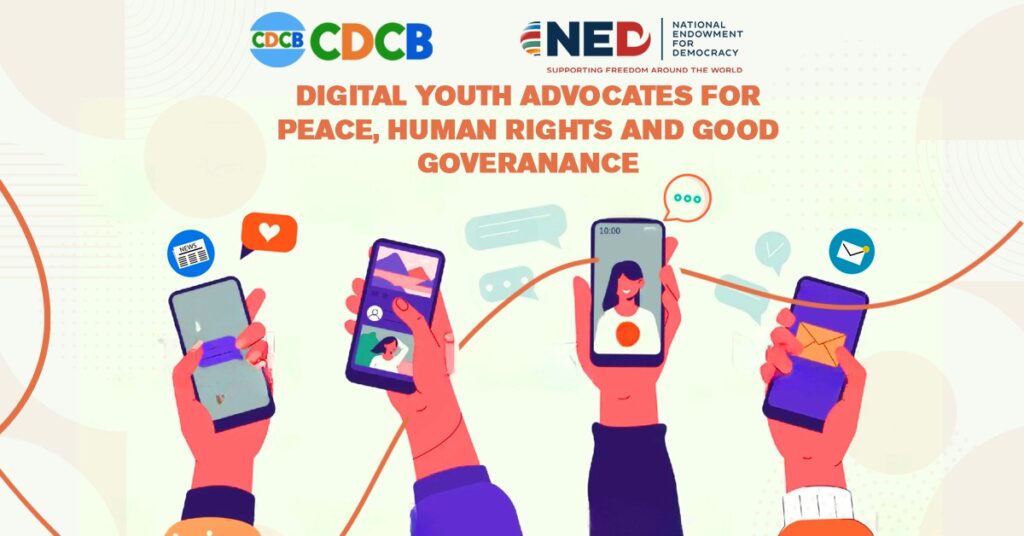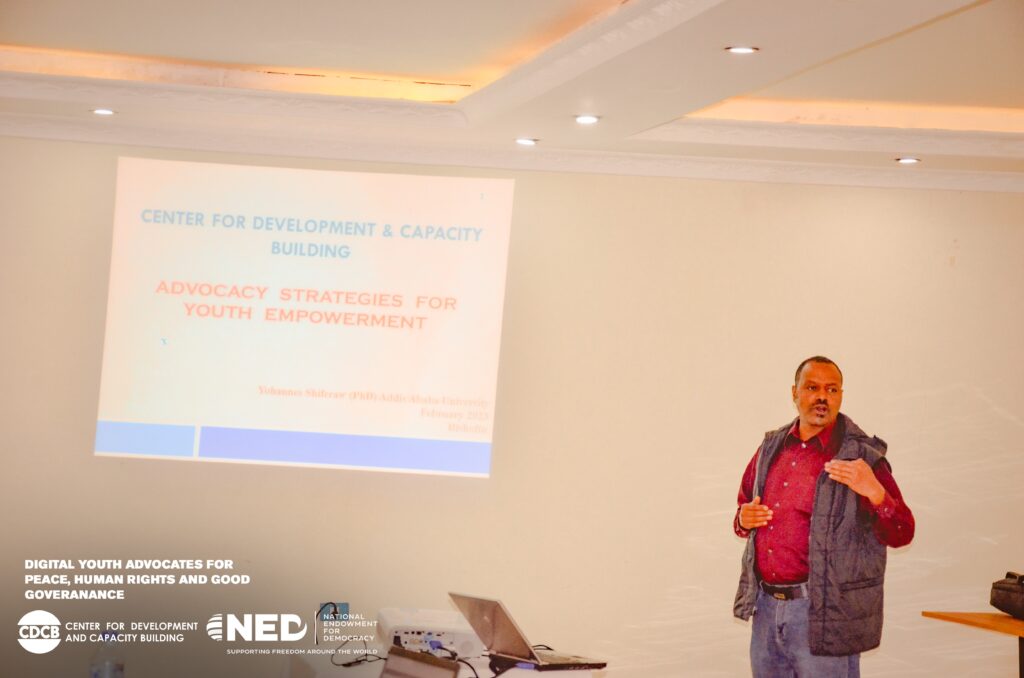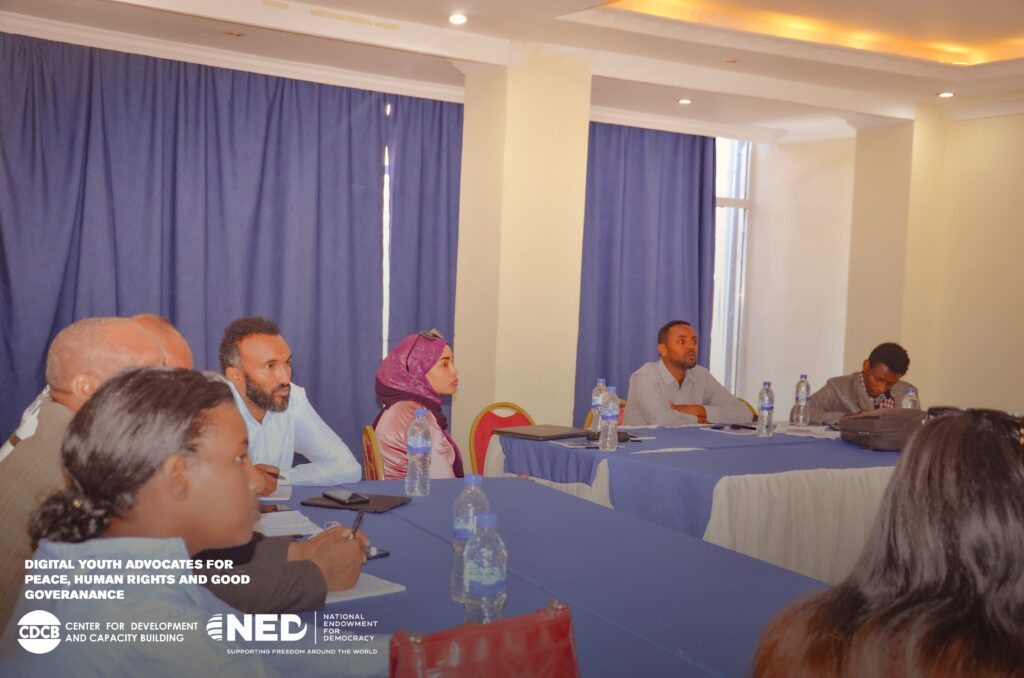
Close

Training on issues connected to the media continued for the second day running on just similar topic and is expected to continue with further discussion partly today (March 9, 2023) at Kilole Hotel of Bishoftu. CDCB organized the training with budget support obtained from Donor Partner, National Endowment for Democracy (NED). Participants are CDCB staff, volunteers as well as Government and private media professionals expected to engage in advocacy activities with overall mission of resolving conflict and in turn peace building.

Focus of the trainer on the second day of media issues (third day of the training) was Advocacy Strategy for Youth Empowerment. The trainer explained advocacy as a distinct form of civic engagement often seen as complement to direct action or civic activism. He added that it should be seen as a form of activity by those concerned to achieve results in positive changes in the society. As he put it, advocates champion causes and seek to influence decisions within political, economic, and social systems.
Referring to impact of advocacy the trainer cited Bowen (2014) as “Effective advocacy increases the power of people to make institutions more responsive to human needs, and it influences public policy and decisions regarding the allocation of resources” (p. 53). Advocacy is about planning a strategy that will make your cause part of reality of others and it ensures that your message is out there in the public eye, he noted.
The trainer identified successful advocates being able to articulate issues so that they inspire others and motivate to take action. The desired change in the advocacy goal can be reached through a targeted set of actions. Once successful, advocacy addresses the root causes of problems leading to longer-term and more sustainable benefits for young people and their communities.


The main goal of this training, he said, was to advocate for peace, human rights, and democracy which are key to human survival in any society. As a developing country, Ethiopia has yet to achieve much of what is needed by citizens, he disclosed. There exist too many conflicts and lack of peace; there is widespread signs of corruption, and abuses of human and democratic rights.
There is urgent need to empower citizens especially the youth about the need for peace, human rights and democratization of systems, he underscored. This has a new clear goal of increasing the size of informed public in society. An informed (made aware) public is relatively resistant to abuses and is vital to bring changes and to solve existing societal problems.
The desired change is the advocacy goal, which can be reached through a targeted set of actions. The purpose is to engage more people to support the ideas, especially those who might perceive a need but do not yet feel inspired to do something about it, he clarified.
In between his explanations, the trainer gave several exercises to increase participation and improve level of understanding of the participants. There were group reports to the plenary displayed on the wall and on the flipchart that were explained by rapporteur of each group. The training and deliberations continue for the coming three days and expected to culminate with planning of online activities among the participants on the one hand and with the CDCB on the other. The ground for that activity is already underway in between the training sessions.
Meskel Square Science and Technology Building 5th Floor
Mon – Fri: 8:00 am – 5:00 pm
Get latest CDG news, articles, and resources, sent straight to your inbox every month.